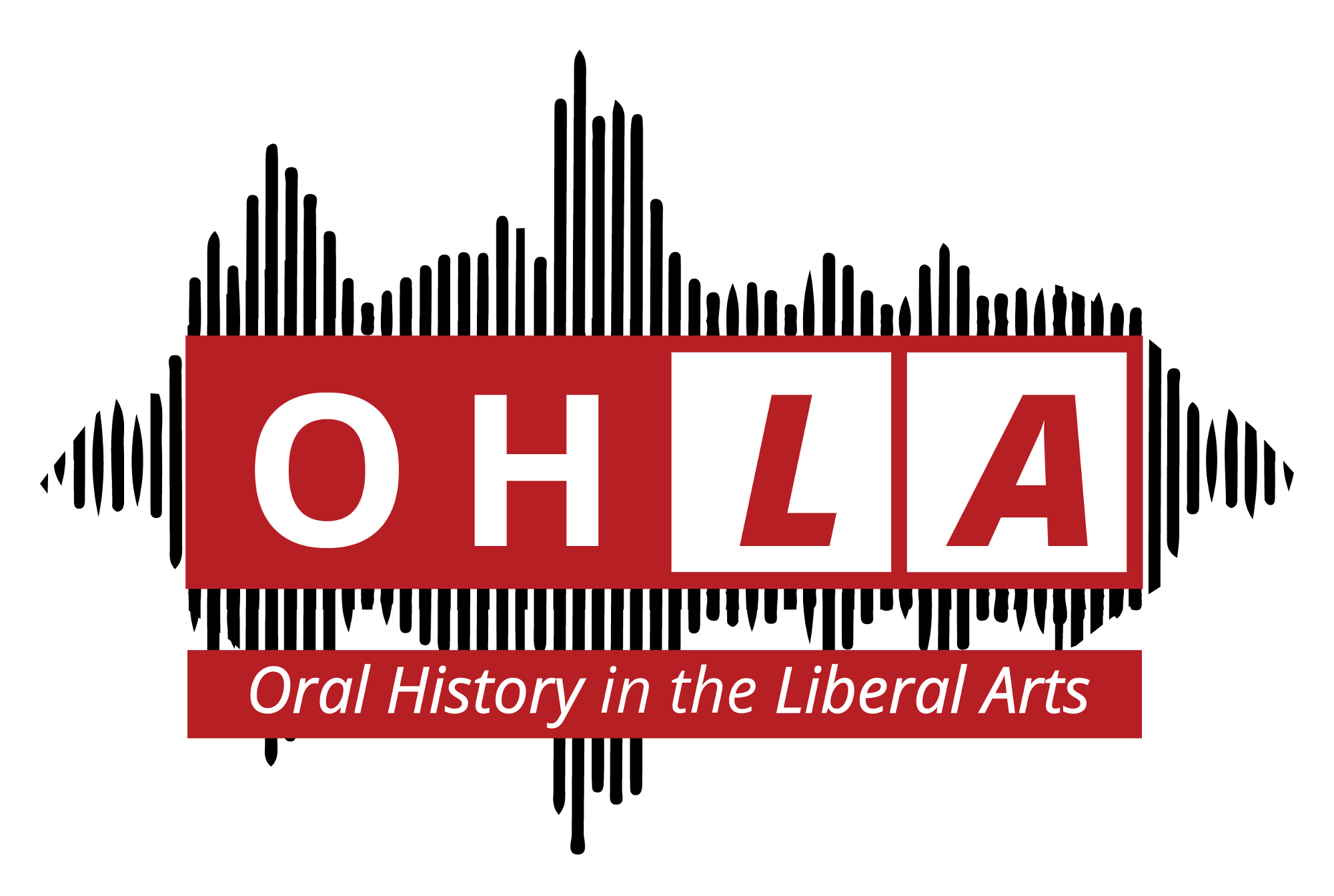By Allegheny College undergraduate student Will Taylor, with Professor Emily Yochim
Developed with funding from the Andrew W. Mellon Collaborative Undergraduate Research in the Humanities grant
In Summer 2016, following the semester when student Will Taylor took my Meadiaville oral history and podcasting class, I asked Will to write a series of reflections on the course and how it confronted the norms of the neoliberal university. This confrontation was complicated, in part because it’s always hard to resist the norm, but also because students tend to see their own success through the lens of neoliberalism. So, for many students, success means being a highly competitive, self-branded, productive and creative with a long list of “outcomes” (i.e., a loaded resume). Will offers some great insights here, pointing to the difficulty of this work and opening up important pedagogical questions.
I believe, that when conducting a community based project with students at a private institution, specifically one residing in an economically deprived community, it is invaluable to make time engaging in self-reflexive consideration of the socioeconomic differences that exist between students and community members. Not only is it necessary for students to establish an understanding of the ways in which social privileges can work to foster inaccurate perspectives of reality, but it is equally crucial to develop strategies to effectively engage with and potentially overcome the unease and cognitive discomforts that accompany such an acknowledgement.
I think it is important that we spend more time in the classroom contemplating how our passive participation in neoliberal institutions permits and perpetuates injustices, and to exercise greater awareness of the ways in which our privileges protect us from said injustices and distort our perception of them when conducting this kind of work—rather than simply discussing the potential negative impacts a private college can have on the community in which it resides, and accepting these circumstances as an inevitability disconnected from our actions as individuals.
This requires the creation of a space in which learners are not only able to engage in self-reflexive consideration of their privileges as students of exclusive institutions, but also to learn “how to deal effectively with the epistemic uncertainty, self-doubt, and cognitive anxiety that often follows,” as Adale Sholock suggests (705). Creating a classroom environment in which students are able to “embrace the discomforts of epistemic uncertainty” (710) requires practices that resist the cultural expectations of higher learning by which students are encouraged establish epistemic authority.
Due dates, time constraints, limited resources, and the high expectations that permeate academic culture, however, all function to place the goals of this sort of pedagogy on the backburner and run contrary to the credential based logic of mastery development that shape common assumptions about the purpose of higher education. Indeed, the inherent time constraints of semester-long courses make sustainable student involvement in community-based projects difficult to manage, and may foster suspicions among community partners pertaining to the sincerity of student intentions.
The purpose of community-based projects that incorporate oral histories should be to privilege the stories and the voices of community members—everyday people who, despite perhaps not possessing the credentials considered necessary to establishing epistemic authority as determined by the academy, embody valuable knowledge that students necessarily need to listen to and respect in order to engage with the community in meaningful ways.
Perhaps, if opportunities for sustained engagement in community-based projects were institutionalized—so as to be continued in a series of subsequent seminar courses—students would be permitted more time to engage in self-reflexive consideration of their privileges as students and the implications that these privileges have for their community interaction. This would allow for students to conduct more careful assessment of the community’s needs and develop an accurate understanding of what they are and are not able to contribute.
It was very exciting to be involved in the Meadville Youth Media class this previous spring semester. To see so many students, ranging from first years to those anticipating graduation, so enthusiastically engaged with local young people was invigorating, to say the least. I think it is very important for Allegheny to embark on collaborative efforts with youth in Meadville, considering that it sometimes seems as though the college may be largely inaccessible to members of the community in which it resides. Along with other projects that worked in tandem with the Year of Meadville, I think the accomplishments of our class are not to be understated. Aside from establishing relationships with local youth, the class worked well as a team to produce an online resource that showcased the diversity of youth creativity in Meadville that may have otherwise gone largely unnoticed or disregarded.
Such an accomplishment is significant when taking into consideration the unprecedented extent to which neoliberal ideologies permeate contemporary American culture, and the implications that those widespread ideologies have for young people in particular. However, it felt as if, at times, the class lacked a critical understanding of these circumstances so as to engage with the theoretical material in an actively reflexive way. Given that all of the students who participated in the class can be classified as youth, there exist similar implications for all of us, as well. However, I felt that such circumstances were unintentionally regarded by much of the class as being non-applicable to our own day-to-day lives as participants of a private institution.
While a great deal of class discussion dealt with attempting to understand the consequences of widespread neoliberal ideologies in everyday life, the class itself was not immune to the very same forces, which impose limitations on learning. Though a “slow scholarship” approach—in which the emphasis on grades was diminished—was taken by the instructor, the credential based logic of mastery development that permeates academic culture managed still to undergird student efforts. Students were, at times, very competitive with one another. One of my fellow classmates had once described the classroom atmosphere to me as, “vicious”. Incidents had occurred in which students attempted to steal potential interviewees from one another, and some members of the class felt as though the workload was not being evenly managed between groups. In a class where the instructor puts so much emphasis on stepping up to the plate and doing whatever work is necessary, how to avoid competitiveness between students for completing that work?
Most interestingly, during the process of developing the website, a disproportionate amount of interest was invested by the class in the “Meet the Team!” section, with a particular concern on individual presentation. Along with frequent talk about including project involvement on resumes, the ways in which the class succumbed to conventional market/efficiency-based pedagogical priorities (concerns with self-branding and monetary educational value maximization) distracted from our ultimate goal of privileging the everyday voices of youth in the Meadville community through the use of oral histories. How might we continue to push against these tendencies in the classroom?
Citation
Sholock, Adale. “Methodology of the Privileged: White Anti-racist Feminism, Systematic Ignorance, and Epistemic Uncertainty.” Hypatia 27(4): 701-714.




